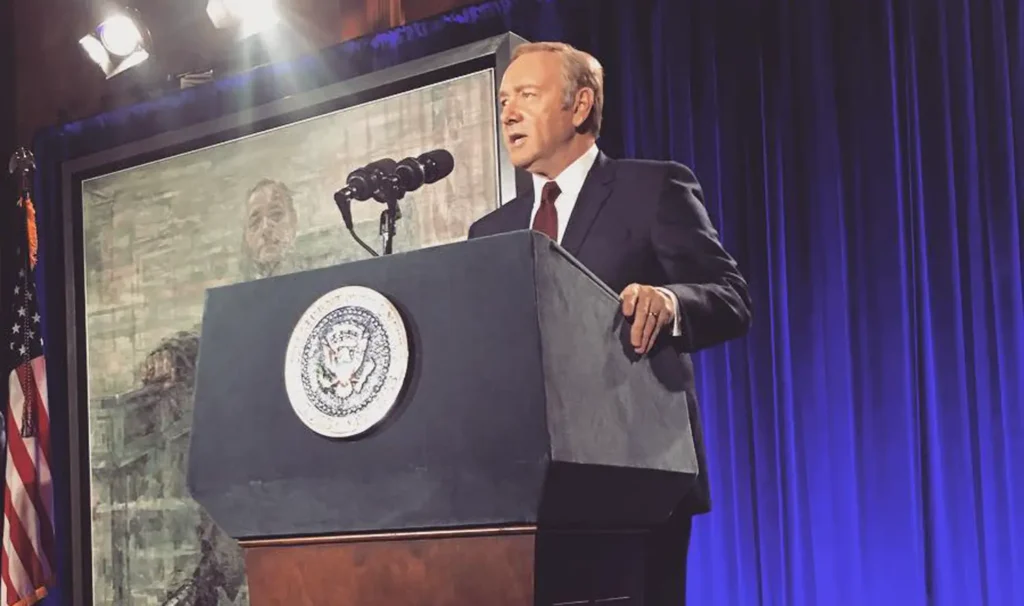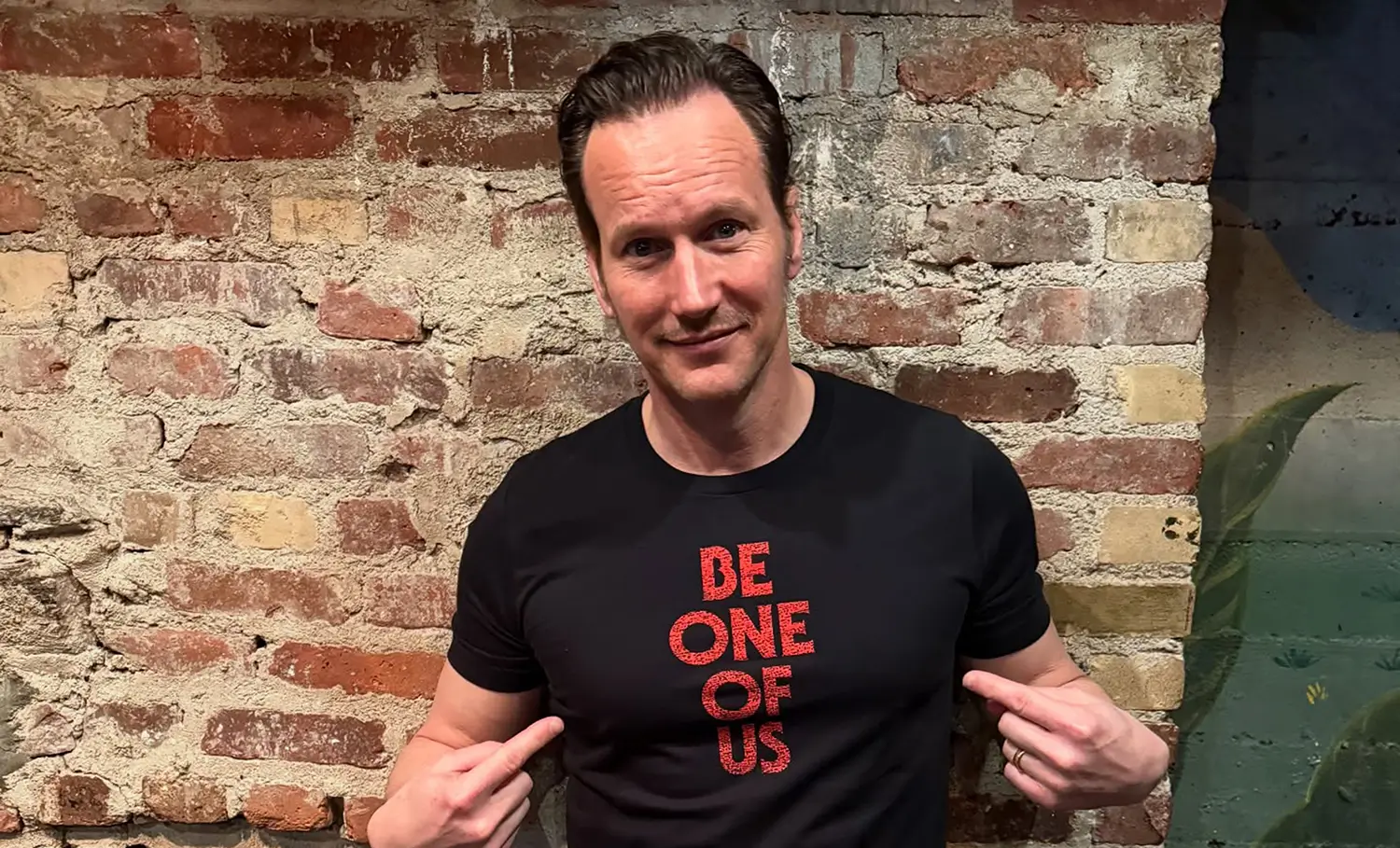Table of Contents
Kevin Spacey, the accomplished American actor known for his compelling performances in films and television, has experienced one of Hollywood’s most dramatic financial transformations. It is estimated that his current financial position stands at approximately negative $2 million as of 2025, marking a significant shift from his peak earning years in the entertainment industry.
Early Career and Rise to Prominence
Born Kevin Spacey Fowler on July 26, 1959, in South Orange, New Jersey, Spacey discovered his passion for performance during his high school years. After attending the Juilliard School from 1979 to 1981, he began building his career in theater before transitioning to film and television.
His breakthrough came with his role in “The Usual Suspects” (1995), which earned him an Academy Award for Best Supporting Actor. This success was followed by another Oscar win for his leading role in “American Beauty” (1999), establishing him as one of Hollywood’s most respected performers.

Spacey’s career encompassed various facets of the entertainment industry. Beyond acting, he worked as a director, producer, and screenwriter. His theatrical background remained important throughout his career, as he served as artistic director of London’s Old Vic Theatre from 2004 to 2015.
Peak Earning Years and Career Highlights
During the height of his career, industry experts suggest Spacey’s wealth reached substantial levels. His involvement in major film productions commanded significant compensation, with reports indicating he could earn between $5 million to $10 million for leading roles in major films.
House of Cards Success
The Netflix political drama “House of Cards” became a career-defining project for Spacey. Beginning in 2013, his portrayal of Frank Underwood captivated audiences worldwide. According to public reports, his compensation for the series was substantial, with estimates suggesting he earned $500,000 per episode in later seasons. As both star and executive producer, his total annual earnings from the show reportedly reached $20 million during its peak years.
The series ran successfully until 2017, when production circumstances changed dramatically, leading to significant alterations in the show’s final season.
Film and Theater Ventures
Throughout the 2000s and 2010s, Spacey maintained an active presence in both film and theater. His production company, Trigger Street Productions, founded in 1997, was eventually acquired by Relativity Media in 2016. He also directed several films and made notable appearances in various productions, including voice work in animated features and roles in video games such as “Call of Duty: Advanced Warfare.”
Financial Transformation and Current Status
The trajectory of Spacey’s financial situation changed dramatically starting in 2017. According to recent reports, his current estimated position reflects a significant decline from his peak earnings, primarily attributed to extensive legal battles and associated costs.
Legal and Professional Challenges
Multiple legal proceedings emerged, resulting in substantial financial obligations. One significant case involved Media Rights Capital, the production company behind “House of Cards.” Initially, a court ruling required Spacey to pay $31 million in damages related to contract disputes. However, it is believed that a settlement was later reached, reportedly reducing this amount to approximately $1 million.
The legal challenges weren’t limited to financial penalties. The associated legal representation costs accumulated over several years of proceedings across multiple jurisdictions, including cases in both the United States and the United Kingdom.
Impact on Career Opportunities
The controversies significantly affected Spacey’s earning potential. Major studios and streaming platforms distanced themselves from projects involving the actor. Netflix terminated their relationship, and several films already in production required costly reshoots with replacement actors.
The loss of future earning opportunities proved particularly impactful. Projects that might have generated millions in income were canceled or restructured without his involvement. Endorsement deals and speaking engagements, which often supplement actors’ incomes, also ceased.
Real Estate and Asset Management
Spacey’s real estate portfolio reflected his former financial success. In 1997, he purchased a Los Feliz property in Los Angeles for $2.135 million. The 1.1-acre estate featured a 6,600-square-foot home. He later listed this property for $16 million in 2015 but ultimately sold it for $11 million in July 2017.
In February 2017, he purchased a waterfront property in Baltimore, Maryland, for $5.65 million. This five-story, 9,000-square-foot residence was among the highest-priced purchases in the Inner Harbor area at the time. However, financial difficulties emerged regarding this property, with reports indicating challenges meeting mortgage obligations.
By 2024, the Baltimore property faced foreclosure proceedings. In a candid interview, Spacey acknowledged that the home was being sold at auction, and he was uncertain about his future living arrangements.
Attempts at Professional Recovery
Despite the challenges, Spacey has made efforts to rebuild his career. In recent years, he has appeared in independent productions, including the Italian film “L’uomo che disegnò Dio” (The Man Who Drew God) in 2021, marking his return to film after a significant hiatus.

In May 2025, he made a public appearance at a Cannes event hosted by the Better World Fund, where he received a lifetime achievement award. While not part of the main film festival, this recognition represented a step toward potential industry rehabilitation.
Industry reports suggest he is attached to upcoming projects, including a thriller titled “The Awakening,” though distribution arrangements remain uncertain. These developments indicate ongoing efforts to re-establish his presence in the entertainment industry.
Financial Recovery Challenges and Outlook
The path to financial recovery in Hollywood following such circumstances presents unique challenges. Even with new projects, rebuilding substantial wealth requires sustained, high-profile work over extended periods.
Several factors complicate Spacey’s financial recovery:
Limited Major Studio Interest: Major production companies remain cautious about association, limiting access to high-budget projects that typically offer substantial compensation.
International Market Challenges: Global distribution of films featuring the actor may face restrictions in various markets, affecting potential earnings.
Insurance and Bonding Issues: Entertainment industry insurance policies may present obstacles for productions, potentially increasing costs for filmmakers.
Ongoing Legal Considerations: While many cases have concluded, the potential for future legal matters could continue to impact financial planning.
Industry Context and Comparison
Spacey’s financial situation illustrates the volatile nature of celebrity wealth in the entertainment industry. Hollywood history includes various examples of actors experiencing significant financial fluctuations due to career changes, though few have experienced such dramatic reversals.
The entertainment industry’s response to various controversies has evolved significantly in recent years, with studios implementing more stringent policies and faster response mechanisms. This shift affects not only immediate projects but also long-term career prospects and financial security for those involved.
Public Statements and Transparency

In his 2024 interview with Piers Morgan, Spacey demonstrated unusual transparency about his financial difficulties. He acknowledged facing foreclosure, managing legal debts, and experiencing uncertainty about basic living arrangements. Such candid discussion of financial struggles is relatively uncommon among high-profile entertainment figures.
This openness may represent an attempt to control narrative or demonstrate accountability, though public reception has been mixed. The interview provided insight into the practical implications of career disruption at this level of the entertainment industry.
Lessons and Industry Implications
Spacey’s financial journey offers several observations about wealth management in the entertainment industry:
Diversification Importance: Heavy reliance on entertainment income without substantial diversification can create vulnerability during career disruptions.
Legal Cost Management: High-profile legal proceedings can generate costs that significantly impact even substantial wealth accumulations.
Industry Relationship Value: Professional relationships and industry standing directly correlate with earning potential in entertainment careers.
Career Longevity Planning: Entertainment careers require contingency planning for various scenarios that might affect earning capacity.
Current Projects and Future Prospects
As of 2025, Spacey continues seeking opportunities for professional rehabilitation. While major studio projects remain unlikely in the near term, independent productions and international projects may offer pathways for career continuation.
The entertainment industry’s approach to second chances varies considerably, with factors including public opinion, legal outcomes, and commercial viability all playing roles in decision-making processes. Spacey’s future financial prospects depend largely on his ability to secure consistent work and rebuild professional relationships.
Conclusion
Kevin Spacey’s financial journey from estimated peak wealth to current challenges represents one of Hollywood’s most dramatic financial reversals. Current estimates suggest a significant decline from his former financial position, illustrating how quickly circumstances can change in the entertainment industry.
While legal proceedings have concluded favorably in many cases, the broader impact on career opportunities and earning potential continues to influence his financial situation. His ongoing efforts to rebuild his career through independent projects and international work demonstrate persistence in the face of substantial challenges.
The entertainment industry continues to evolve in its approach to various controversies, and Spacey’s experience provides insight into both the immediate and long-term financial implications of career disruptions at the highest levels of Hollywood success.
Whether future projects will enable financial recovery remains to be seen, but his situation serves as a case study in the complexities of celebrity wealth management and the interconnected nature of reputation, opportunity, and financial security in the entertainment industry.









